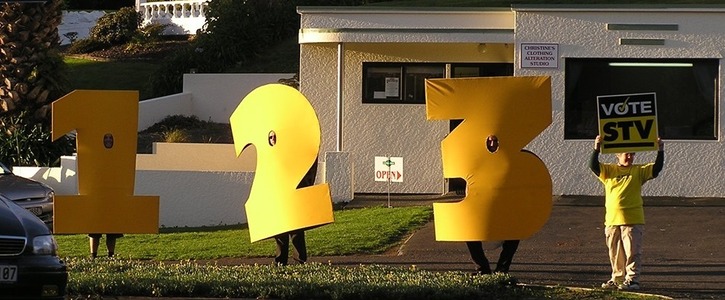Petition is successful with 204 signatures
To: Hamilton City Council
Vote STV for Hamilton
August 2020: Hamilton City Council to use new voting system https://www.rnz.co.nz/news/national/422927/hamilton-city-council-to-use-new-voting-system

We want the mayor and councillors of Hamilton City Council to change the voting system from 'First Past the Post' to 'Single Transferable Voting' when it reviews the electoral system in 2020.
Why is this important?
Voter turnout and engagement in local government elections is low. Residents feel that their vote doesn't make a difference. STV is a fairer and more effective voting system for our community to be represented.
STV is a system where you rank candidates, instead of under FPP where you tick or don't tick to vote for a candidate. Under STV, you're able to communicate your preferences - if your initial candidates don't get enough votes to get in, as well as if there's more votes for your candidate than they needed to get in, your next choice is counted. Under FPP, because you only have the option of voting for a candidate, or not voting for them at all, this can shape voter behaviour by only voting for candidates who are perceived to be popular or established as not wanting to "waste" their vote on a candidate who may not get over the line. It may also mean that a vote for one candidate on your ballot may be undermined if you vote for another candidate who ends up coming in close in votes to the first candidate - under FPP, you're unable to communicate to the system your preference between the two.
- Under STV, winning candidates will have support from a majority of voters. More people will have had a say in the make-up of the elected council.
- There are fewer 'wasted votes'. Once a preferred candidate reaches the quota - votes are shifted to their next preferred candidate, and if a candidate does not come close to being elected, votes are shifted to their next preferred candidate as well.
- Under STV, our council is more likely to be representative of the voices of our community.
We recommend reviewing the additional information provided at https://www.yourcityelections.co.nz/ - put together by Hamilton City Council, and this video about how STV works in action and why is creates more representative councils https://youtu.be/l8XOZJkozfI
STV is a system where you rank candidates, instead of under FPP where you tick or don't tick to vote for a candidate. Under STV, you're able to communicate your preferences - if your initial candidates don't get enough votes to get in, as well as if there's more votes for your candidate than they needed to get in, your next choice is counted. Under FPP, because you only have the option of voting for a candidate, or not voting for them at all, this can shape voter behaviour by only voting for candidates who are perceived to be popular or established as not wanting to "waste" their vote on a candidate who may not get over the line. It may also mean that a vote for one candidate on your ballot may be undermined if you vote for another candidate who ends up coming in close in votes to the first candidate - under FPP, you're unable to communicate to the system your preference between the two.
- Under STV, winning candidates will have support from a majority of voters. More people will have had a say in the make-up of the elected council.
- There are fewer 'wasted votes'. Once a preferred candidate reaches the quota - votes are shifted to their next preferred candidate, and if a candidate does not come close to being elected, votes are shifted to their next preferred candidate as well.
- Under STV, our council is more likely to be representative of the voices of our community.
We recommend reviewing the additional information provided at https://www.yourcityelections.co.nz/ - put together by Hamilton City Council, and this video about how STV works in action and why is creates more representative councils https://youtu.be/l8XOZJkozfI
How it will be delivered
Politics in the Tron will present this petition to the Hamilton mayor and councillors during the electoral review in 2020 to show community support for the change.


